Ernest
Credit to Author: Geoff Manaugh| Date: Thu, 19 Oct 2017 14:00:00 +0000
— ONE —
It’s when Kevin is on stage, gazing out at the audience with a puzzled look on his face, baffled by the sheer spectacle of appearing live on national television, that Jimmy Kimmel makes his big announcement.
“We’ve got a very special guest in the house tonight,” Kimmel says, “a very haunting guest.” A sound of recognition and excitement ripples through the studio. “Anyone want to meet a ghost?”
The audience roars in approval — but it’s the expression on Kevin’s face that stands out. He turns to Kimmel, eyes glassy with tears, and says, “It’s here?”
+
Few people believed the videos at first — that a house could be haunted, that ghosts were real, that any American family would respond the way the Presleys did — but the videos, nonetheless, kept coming. Four were uploaded the very first night. More than seventy in one month.
People all over the world tried to debunk them, of course, performing detailed analyses of every frame. Millisecond by millisecond, skeptics scanned for evidence of computer imagery, of trickery and fraud — of smoke and mirrors — and, of course, a few thought they found it, even after the ghost appeared in public, shaking hands with Jimmy Kimmel on live TV.
By then, however, too much other footage had appeared, and the truth was impossible to deny. Neighbors had filmed the ghost from every angle, with a clarity even grizzled special effects experts were unable to match. Friends and family members alike took close-ups and selfies with the ghost standing in the background, its mouth agape, its eyes hollow, every detail too perfect to fake.
This was not CGI. A house in suburban Chicago really did have a ghost.
Ernest was real.
+
The story hit all the right notes: an attractive young family moves into a sprawling Victorian fixer-upper in the Chicago suburbs only to find it has a secret resident, this strange, blue-ish man — this specter — camped out in an unused bedroom.
The dad, Frank Presley, newly headhunted president of a suburban hospital-billing firm, later admitted that he had no idea where his reaction to the ghost came from. Nevertheless, it helped make his video an instant hit, a viral sensation, accumulating more than twenty million views from almost every country on Earth.
It was the family’s first night in the house. The kids were in bed. Their mother, Melanie, an illustrator of children’s books who had made her name with a New York Times-bestselling tale of a kid who runs away from unloving parents, was sound asleep. Frank was lying there with the lights out, listening to the settling of the house around him, to the roll of acorns down the roof, thinking about money and its absence, when he heard something new. Like furniture being dragged along the hardwood floor. Coming from inside the house.
Frank later said he didn’t feel fear but, rather, irritation. He slipped out of bed, phone in hand, ready to call 911 and report a burglary. He stepped down the hall toward the last room on the left, past the closed doors of his sons’ bedrooms, hoping to maintain the element of surprise. Frank, after all, had kept himself in shape over the years with the build of a late-career tennis player, and he was determined not to let an intruder get the best of him.
And there it was. Standing alone in the center of the room. Shuffling its feet with a sound like cinder blocks scraped across a ship deck.
The ghost.
When he first walked into the room, Frank said, the ghost drunkenly lurched toward him, its arms in the air, mouth agape. Frank stood his ground. The ghost took another step, thunderous, as if to shake the very foundations of the Presleys’ house, and the lights in the room flared with a demonic flicker. The temperature dropped ten degrees.
But the Midwest was in the midst of a late-summer heat wave, Frank later said, and it actually felt amazing, like air-conditioning he didn’t have to pay for.
It was at that point that Frank raised his cellphone — not to call police, but to open up the camera app.
He began filming.
+
In the footage, the ghost’s terrifying expression quickly fades. It seems confused by Frank’s reaction, its black eyes squinting in perplexed disbelief.
Which is when Frank starts to laugh.
The video is almost impossible to watch without joining in: this supernatural figure looking unbearably confused — almost embarrassed — as a grown man doubles over in hilarity, unable to keep his phone still. But that was the thing, Frank explained. He didn’t feel panic. He had seen enough haunted house films. He was no longer worried about his wife and kids — or, to be honest, even thinking about them. He had been expecting an armed robber, an entire burglary crew, but this clammy ghost with its outstretched arms, this air-conditioned man?
“Do it again,” Frank says in the video. “Do the — that thing with the lights.” He zooms in on the ghost’s face and laughs again, like he can’t believe his luck.
The ghost’s arms fall to its sides.
+
Over the next few days, Frank filmed the ghost all over the house, at different times of day. He filmed it standing in darkness at the bottom of the basement stairs as the door creaked open; he filmed it staring cross-eyed through a cloud of mist as Frank shaved in the master bathroom.
After a long Saturday afternoon unpacking, Frank woke up from a nap to find the ghost standing there, looking down at him with lifeless eyes. He took out his phone and snapped a picture. The flash temporarily blinded the ghost, whose shocked, blinking retreat — bumping into the doorframe on its way out — Frank captured on film.
Frank tried introducing the ghost to Melanie but this only confused it further. She reached out to shake its hand and the ghost responded reflexively — before snatching its hand back in dismay. Every closet door in the house slammed shut, rattling Presley family pictures in their frames.
Frank decided to raise the stakes. He would sneak up on the ghost, bursting out from behind a curtain to drop heavy books on the hardwood floor. The ghost would flinch, jump back, and gaze in irritated disbelief at the lens of Frank’s camera. In one video, the ghost actually placed a hand on its chest as if it was, impossibly, having a heart attack.
Frank uploaded video after video — and word began to spread. The Presleys got calls from Fox and CNN. Online view-counts soared, hitting millions.
Relishing the interest, Frank tried to teach the ghost tricks. He threw tennis balls at it, hoping it could juggle. All the lights in the house blacked out. He tossed it Frisbees, a hacky sack, an autographed University of Illinois Fighting Illini football. Frank’s watch began to run backward. He even gave the ghost a bottle of beer, but the glass cracked, frozen solid in a wave of otherworldly cold. Frank cheered.
The ghost began acting increasingly nervous around the Presley family. It looked anxious, almost shy, pushing itself up against the wall like it didn’t want to be seen, as if hoping Frank would just ignore it.
While Frank insisted that he had no idea why he treated the ghost like this — that he was a nice guy, a good father — Melanie had her own ideas. Years later, after everything had ended, after both kids had been to college and beyond, Mel suggested in her memoir that Frank simply could not adjust to his new job. They had interrupted their lives for him to assume a position of executive authority in the suburbs, but no one at the company seemed to care.
Once Frank had even suggested that everyone on his team leave work an hour early so he could buy them a round of drinks — but, as he sat there at the bar, waiting, no one else showed up. He went through a pitcher of beer on his own and drove home so drunk Mel couldn’t believe he hadn’t killed someone.
If it hadn’t been for the ghost, she wrote, Frank would have found another outlet for his frustration, another target at which to vent.
It was around this time that Frank started calling the ghost “Ernest.” No one knew why until a local television reporter asked him about it on live TV. Why Ernest?
It was now almost a month into the haunting. A sizeable crowd had gathered in front of the Presleys’ house. Some had lawn chairs and all had their smartphones out, hoping to catch a glimpse of the ghost through one of the windows.
“I thought you said you watched the videos,” Frank replied. He was wearing a polo shirt, a glass of sparkling water in one hand, disdain in his eyes. “It’s because he looks like Ernest Borgnine.”
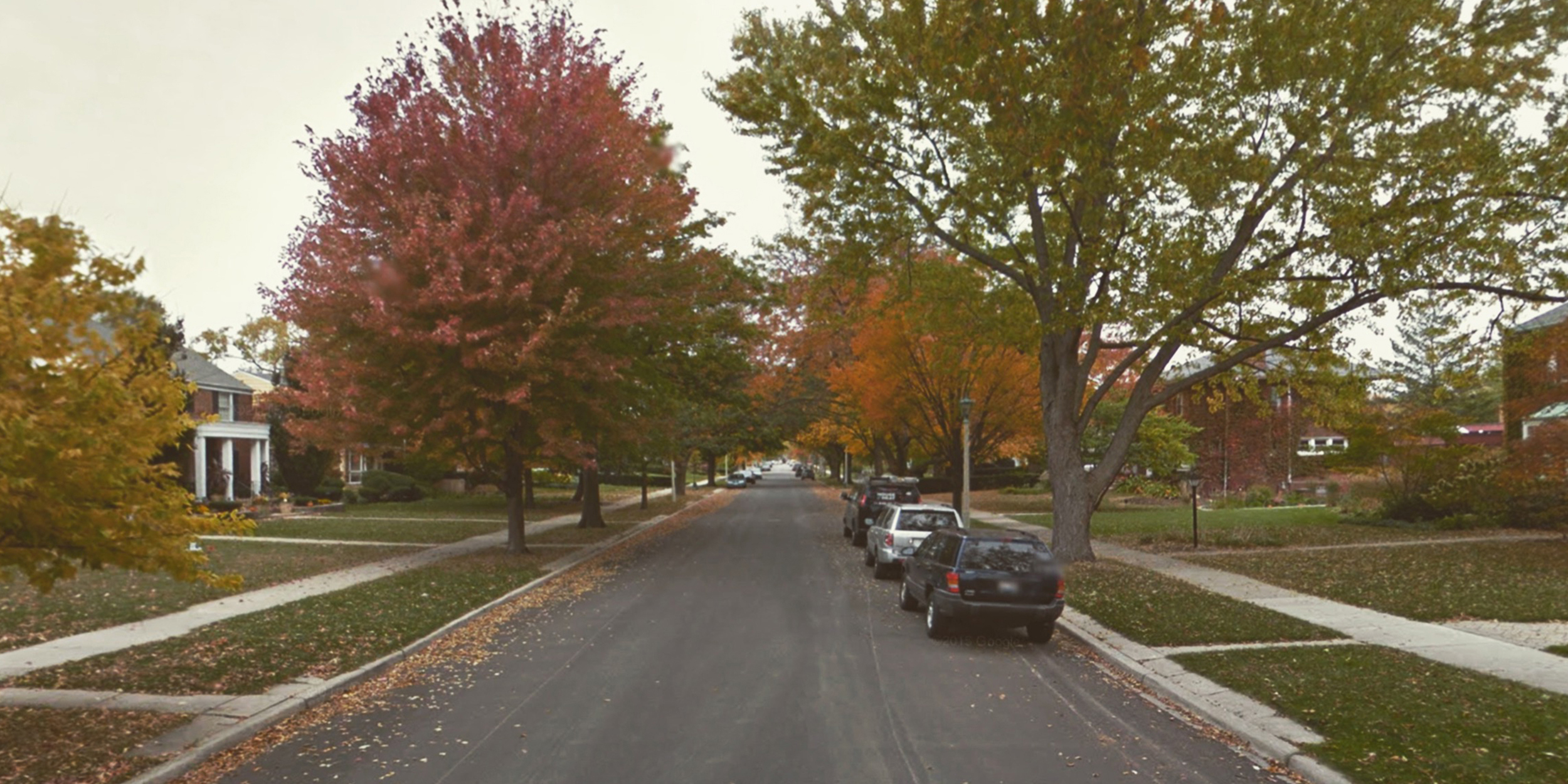
+
The next week, Frank tried a different approach. He wanted his sons to interact with the ghost. Fulton, 14, simply refused to do so, but Kevin, their oldest, got a response. The two of them actually seemed to get along.
Kevin, 18, old for his year at school due to an August birthday, had been growing out his hair and spending more time alone as the prospect of college loomed. His senior year had been hopelessly upended by the family’s move, forcing him to say goodbye to a girlfriend in a town now two hours away. If anything, Kevin seemed to like the ghost’s company. He would play it music — Pink Floyd, The Doors — show it comics or his mom’s art books — M. C. Escher, Caspar David Friedrich — and, one day, he brought out a world map.
The videos of these exchanges are peaceful, lacking the frenetic rush of Frank and his dad jokes, his ill-conceived tricks, his uncomfortably cruel need for media-friendly spectacle. In a widely shared Facebook post, a professor at UC Santa Cruz compared Kevin interacting with the ghost to an anthropologist discovering an uncontacted tribe.
“We’re in Illinois,” Kevin whispers in one video. “Here,” he says, pointing down at the map. The ghost seems captivated by the fact that someone is being nice to it; it points down at the map alongside Kevin, before timidly withdrawing its hand. “Illinois,” Kevin repeats. Some viewers claimed to be on the verge of tears.
Frank, though, had other plans. He wasn’t a missionary or an anthropologist, for God’s sake; he wanted to monetize this. YouTube views, Amazon links. “A family discovers oil under their house,” he says in one video, looking directly at Ernest. “You don’t think they’re gonna cash in?” The ghost seems mildly depressed by the comment.
The videos continue. In one, Frank pressures the ghost into writing its real name down — to reveal something, anything, about itself — but soon loses patience and storms out of the room. In another, he locks Ernest in an upstairs closet and threatens to keep it there till it explains where it came from. (Kevin sneaks in a few minutes later to set it free.)
After too many drinks one night, Frank filmed himself running into Ernest’s bedroom and flashing it with a strobe light, playing heavy metal music on a portable speaker. The ghost looked terrified. Another night, he splashed it with a bucket of cold water, Ernest responding with a howl of frustrated rage. The video got three million views and spawned a hashtag, #ghostbucketchallenge.
“I think he does not treat the Ghost well,” a commenter in China suggested. “Americans do not respect their dead.” The remark drew more than two thousand likes.
Then the dinner parties began.
+
Frank’s next idea, he thought, was his best yet. He invited friends, neighbors, and colleagues over for drinks and dinner. He assigned Melanie kitchen duty. After the alcohol settled in, and the tension and expectations had been ratcheted up to Super Bowl-like levels, Frank led Ernest out into the dining room. He secured it to the floor with discount climbing rope and encouraged everyone to make films, take selfies, stage group portraits with the ghost looming creepily in the background.
A few people screamed when Ernest lumbered in; one man fainted, unable to bear such a close encounter with the afterlife. Ernest bared its teeth. It made the candles roar with ten-inch flames. In a framed family portrait on the wall behind everyone, Frank’s face turned black, as if smudged with charcoal. Everyone clapped. Undeterred, Ernest turned a woman’s hair grey, expecting her to run out of the room. Instead, she took a selfie.
At first, the dinner party videos show Ernest howling at neighbors and snapping at dinner guests, never in any recognizable language, but each time met with shouts of approval. Everyone has their smartphones out, looking not at Ernest but at their screens.
This goes on for weeks.
By early October, however, it was obvious to everyone that something had changed. Something wasn’t right. Ernest had grown less and less responsive as the parties dragged on, soon more likely just to sit in the corner than to pay attention to anyone, one night not even turning around when Frank pelted it with chunks of French bread.
Frank soon admitted, in a long and at times hard to follow monologue posted from his car on the way to work, that the ghost was — well, Frank said, as if admitting defeat in a personal crusade, “This ghost thing — it’s not working out.” At one point, it sounds like Frank offers Ernest up for a ticketed raffle, something he later denied.
What became clear over another two weeks of filming was that Ernest had fallen into a profound depression. No one took it seriously anymore. It was a circus animal, an abused pet. It would make eye contact with different guests for five or six seconds, unblinking, staring at them for some sort of response or recognition — for any acknowledgement at all — then shift its glance away or look down at its feet.
Eventually, Frank’s now-uninterested dinner guests became so blasé about the sight of this supernatural being that they ignored it altogether, no longer even uploading their films. For the first time since the ghost’s discovery, Ernest dropped out of the news cycle.
A ghost — what ghost?
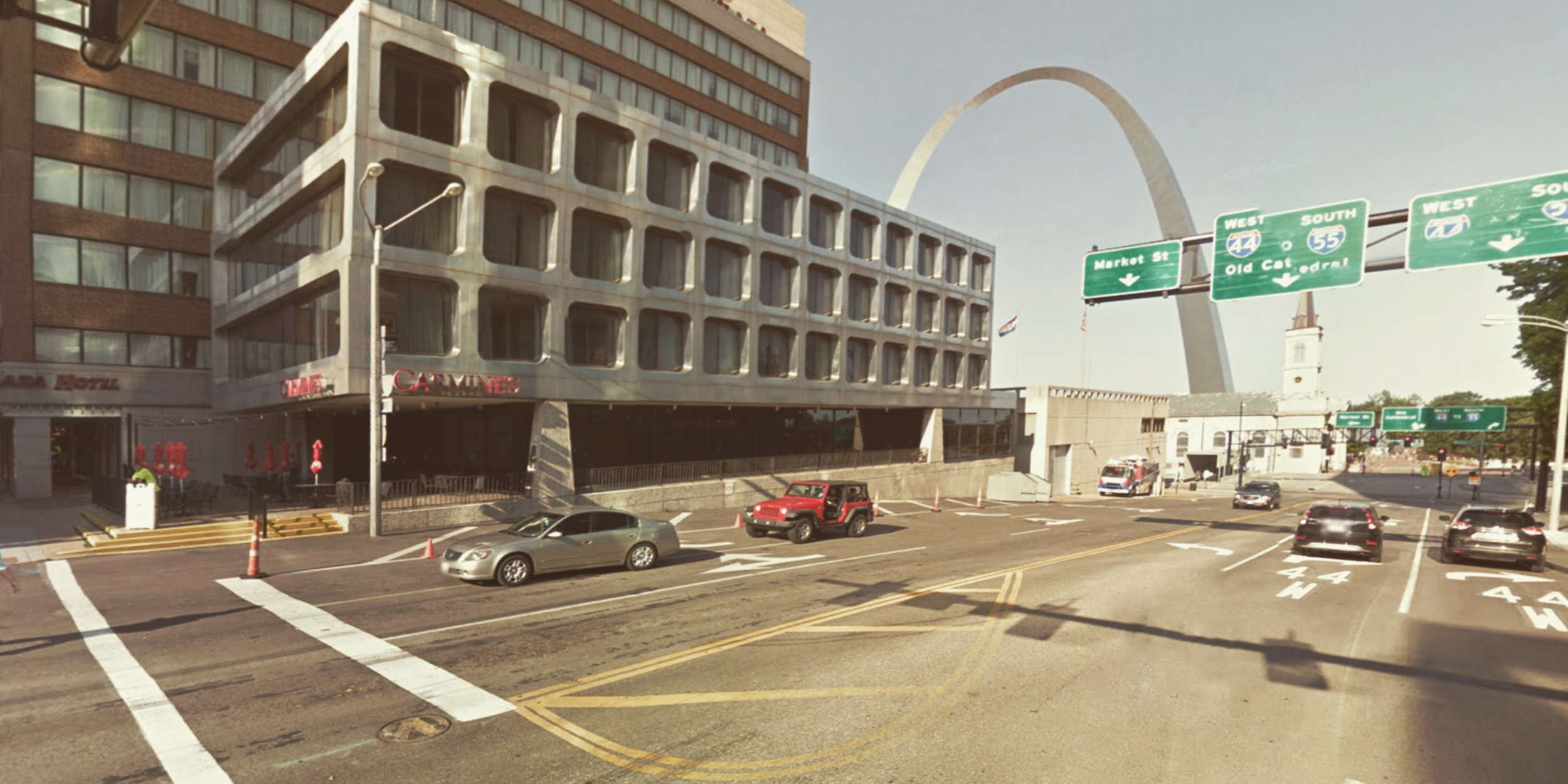
— TWO —
When the Presleys awoke Saturday morning, ten days before Halloween, Ernest was nowhere to be seen. Worse, when Melanie went to check on the boys, she discovered that Kevin, too, was gone. The Presleys, like everyone, assumed the worst.
Frank live-streamed the whole experience — his growing panic, the empty bedrooms — even uploading footage of himself calling police. He kidnapped Kevin! Frank shouted. Ernest took my son! The clip played on cable news more than fifty times in one day.
Ghost Abducts Teenage Boy, ran one paper. Supernatural Kidnapping? asked CNN.
By the end of the week, everyone had a theory. People around the world binged on hundreds of hours of footage, watching every short film uploaded by the family, by neighbors, by drunk dinner guests, hunting for clues, for proof that the Presleys had brought this upon themselves, that Frank had abused Ernest, mistreating the ghost so wantonly, so egregiously, that it finally came looking for revenge.
The Presleys had humiliated it, people said, until the ghost retaliated in the middle of the night, sneaking into Kevin’s bedroom and taking their eldest son.
Ernest’s Fall From Grace, FOX reported. The ghost went from unlikely celebrity to suspected kidnapper overnight.
Then Fulton revealed that Kevin and the ghost had been talking.
+
In retrospect, it should have been obvious, but millions of viewers around the world somehow missed it. Kevin can be seen in many of the dinner party videos, eating silently beside his family or bringing freshly mixed drinks out for other people to enjoy — but, in every single one of them, at some point Kevin looks over at the ghost as if to commiserate. At one party, three weeks before they both went missing, Ernest begins to look back. In one video, they make eye contact. Ernest cocks its head to the side, as if to say: what do you expect? It’s almost endearing.
Fulton finally admitted during an interview with the FBI that Kevin and the ghost had been staying up late in Kevin’s bedroom. Ernest had a strange voice, Fulton said, an electric crackle like a mistuned radio, though Fulton said he never really heard much. Just voices. Quiet music that could have been Led Zeppelin. But it was almost every night, he added, and it went on for weeks. Some nights he even heard laughter.
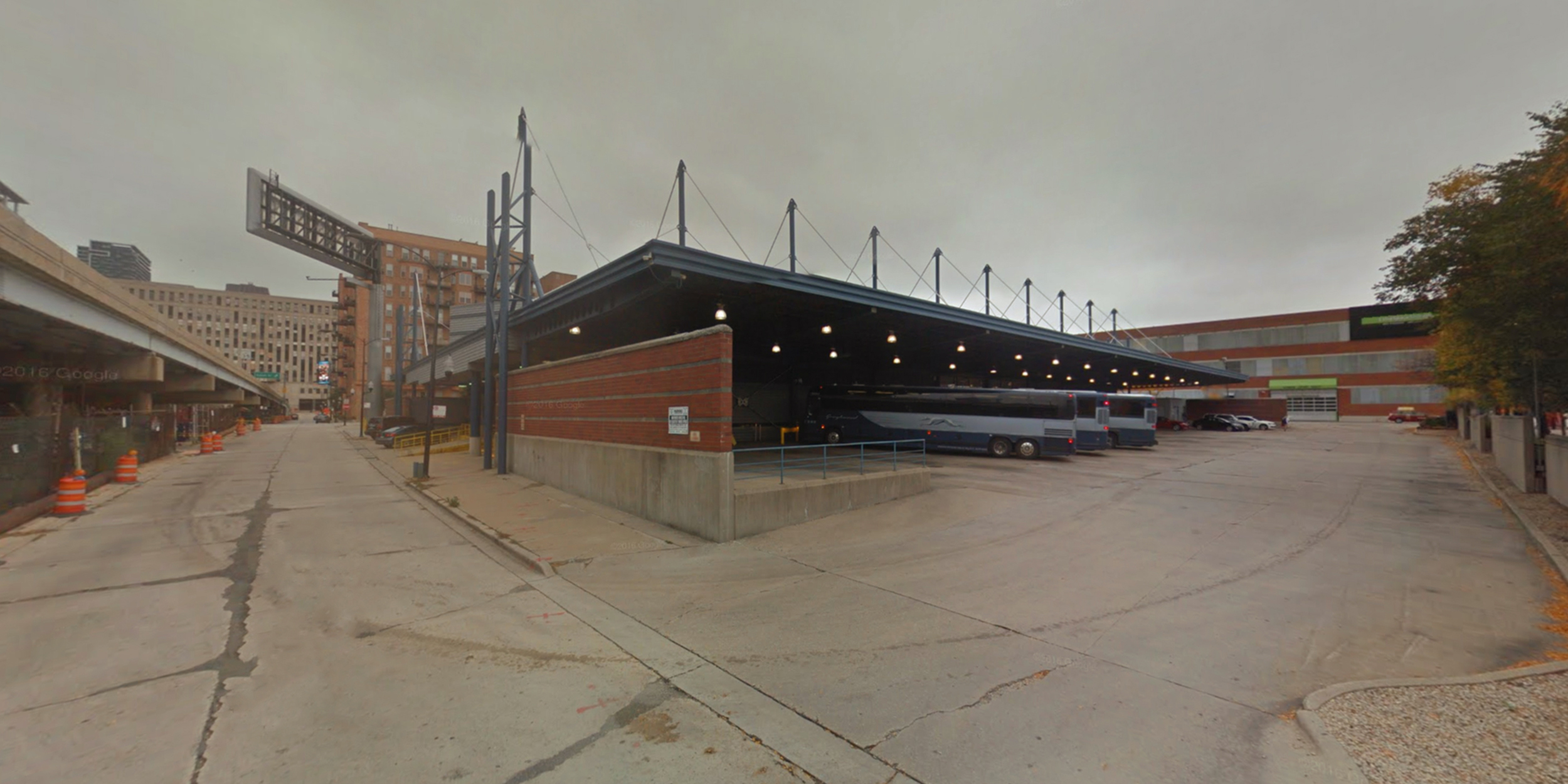
Surveillance footage began rolling in. It played on the evening news first, a CBS exclusive, before it was all over the internet. CCTV in downtown Chicago had caught Kevin boarding a bus to St. Louis, a large, noticeably over-dressed figure waiting behind him, nearly every inch of its skin covered, face hidden by a Cubs hat.
Ernest.
An ATM camera near the St. Louis Arch caught them trying, unsuccessfully, to use one of Frank’s bankcards. Then, outside Springfield, Missouri, more footage popped up. It showed Kevin talking to a convenience store employee in front of a case stocked with energy drinks while Ernest moved toward the checkout. Although it’s hard to see at first in the high-contrast grain of the store’s security footage, the register seems to slide open of its own accord. Tiny curls of cash begin wafting over toward the ghost’s pockets, as if pulled by a vacuum. The police report later said it was more than three hundred dollars.
After the register slides closed, Ernest glances over its shoulder — and a fifth of whiskey floats off the shelf, straight into its coat pocket. The ghost appears to be grinning.
The FBI didn’t see the joke. Kidnapping became robbery, and roadblocks began to appear throughout southwestern Missouri.
+
When Melanie, Kevin’s mother, was asked by a talk show host about the uncomfortable similarity between Kevin’s case and the story of the boy who ran away from heartless parents in her most recent children’s book, she burst into tears and Frank ended the interview.
For all the distance they had covered since leaving suburban Chicago, Kevin and the ghost were not particularly good at being fugitives.
The night before Halloween, they checked into a roadside hotel in Tulsa called Spirit of the West. It had free cable, a partially drained indoor swimming pool, and a parking lot filled with rustling drifts of orange and yellow leaves. The hotel manager who welcomed them recognized Kevin from the internet and called a law enforcement hotline she had seen advertised on CNN.
At six o’clock in the evening, as a blazing autumn sun set over America’s heartland, a man in a pizza-delivery t-shirt walked up to knock on room 127. Kevin answered the door. The man — an undercover FBI agent — immediately dropped his pizza box and ordered Kevin to step outside with both hands clearly visible.
Ernest, who had fallen asleep on one of the hotel beds watching TV, stood up, its black eyes widening. The hotel floor began to tremble. The furniture, then the walls, shook. A cold breeze swirling in the center of the bedroom became a gale, blowing the FBI agent back into the parking lot.
Even Kevin fell to the ground, scuffing an elbow. Armed men rushed in, dragging Kevin by the armpits into custody.
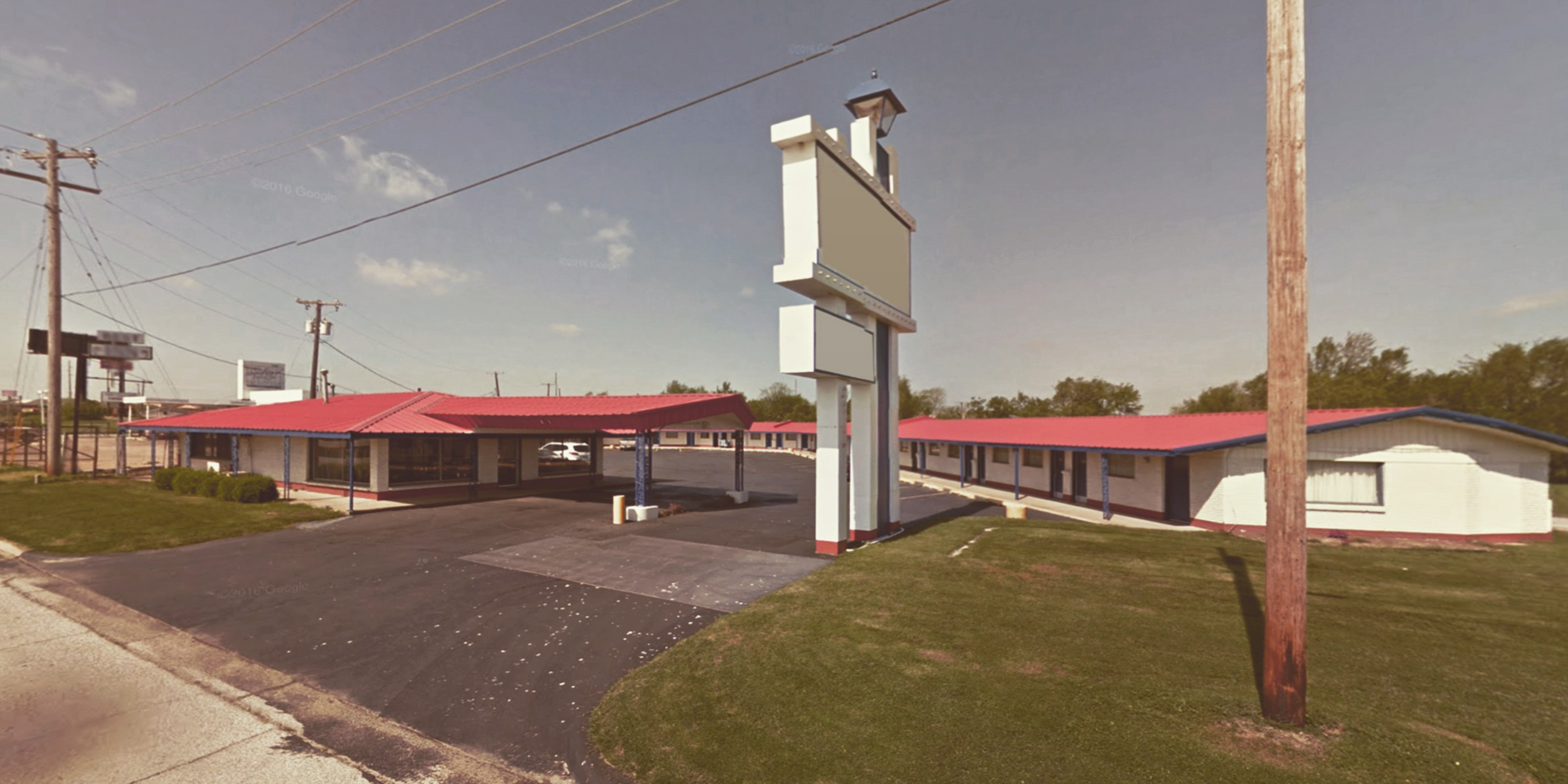
Ernest now stood in the center of the doorframe, confused. It saw Kevin being stuffed into the back of an SUV. The hotel’s entire electrical network surged. Every light bulb for two hundred feet burst, jagged sparks showering onto the hotel parking lot.
Everyone could see, as the cameras rolled and the event made its way live, from TV to TV around the world, that the ghost had visibly changed. As Ernest stepped out of the hotel room, seething, its skin tone was noticeably rosy, flushed, no longer oxygen-starved but healthy again. It looked twenty, even thirty, years younger. From a distance, the ghost could almost pass for a live human being.
These glimpses were all the public got as armed special agents swarmed the ghost from each side, wrestling Ernest to the ground in what would later be described by Bureau historians as the strangest raid in FBI history. Shotgun-wielding state troopers wearing blue surgical gloves helped rush the ghost past a gauntlet of news crews, hustling it into the back of a military transport truck.
Kevin and the ghost made eye contact one final time as the truck doors slammed shut, Kevin sitting in the back of a black SUV, banging his fist against a bulletproof window.
+
Ernest, Kevin insisted right away, was not a kidnapper. If anything, he had kidnapped it, Kevin said. It was a rescue operation. He had saved it from his family’s ill-advised tricks, from the disgrace of Frank’s dinner parties. Besides, Kevin added, Ernest was the victim here — literally. Ernest had been murdered. Why didn’t everyone realize that? How did everybody think Ernest had become a ghost in the first place?
Over the course of uncountable hours of recorded interviews, Kevin led the FBI patiently and thoroughly through every detail of Ernest’s murder, including the name of the uncle who did it.
Kevin, of course, had been changed by the experience, no longer the introverted high school senior he had been only ten days earlier. He and the ghost had learned and shared a lot over the past few weeks, beginning long before their brief but epic road trip, from the very first night Ernest snuck into Kevin’s bedroom to listen to music and talk.
Ernest’s murder was not only unsolved, Kevin emphasized; the uncle had never even been investigated.
Bring the ghost justice, Kevin said. Solve the crime.
Let Ernest rest in peace.
+
By the time Jimmy Kimmel got in touch, Kevin’s initial hope had shaded into resignation and despair. Three weeks had gone by and the FBI was no longer responding to his phone calls. He no longer knew if he and Ernest were even in the same state.
Kevin later said that he agreed to be on Kimmel’s show only because he had caught the ghost watching it one night in a Missouri hotel room, quietly laughing to itself. Plus, Kevin said, he wanted the world to know the truth; he wanted to tell everyone, in his own words, what really happened. It was time — finally — to vindicate Ernest.
Twenty minutes into the broadcast, after Kevin has finished telling his story, pleading for authorities to investigate Ernest’s murder, Kimmel turns to the audience: they are going to skip the next commercial break, he says. “We’ve got a very special guest in the house tonight,” Kimmel announces, “a very haunting guest. Anyone want to meet a ghost?”
Unbeknownst to Kevin, the FBI had released Ernest while Kevin was on his way to the TV studio. Kimmel’s people had immediately arranged for the ghost’s supervised transport to Los Angeles, all the while insisting that Kevin stay offline and away from the news backstage.
When Ernest emerges from behind the stage curtain, Kevin’s tears are real. Ernest is wearing a button-up shirt and a new pair of jeans, and when the ghost sees Kevin sitting there on stage beside Jimmy Kimmel, it holds up a hand and nods. It is an understated moment of thanks that seems designed to hide the fact that Ernest, too, appears to be crying.
The audience, at this point, needs no cue; the room explodes with cheers and camera flashes. It would become the most-watched television show in American history.
Kimmel, for his part, could barely contain the place. After several minutes of near-chaos, he manages to bring things under control. He shakes Ernest’s hand — “Quite a grip there, buddy,” Kimmel winces — and invites them both to sit down.
Inspired by Kevin, Kimmel explains, an FBI agent and a Chicago homicide detective had teamed up to look into Ernest’s case. Ernest listens stone-faced as Kimmel repeats the details: although Ernest’s uncle was killed in a drunk-driving accident nearly twenty years earlier, the uncle would be posthumously charged with murder at a press conference scheduled for 9am Monday morning.
Ernest’s time as a ghost was almost over.
+
Midway through the press conference, as the District Attorney for the State of Illinois announced the closure of Ernest’s case, a local reporter who had been a guest at Frank’s dinner parties screamed. Her necklace — a silver cross — had turned ice cold and rotated upside down on her neck. Ernest tried, and failed, to maintain a poker face.
As soon as the D. A. stepped away from her microphone, Ernest’s spirit began to wane, the ghost’s skin like sunlight shining through a thin linen curtain.
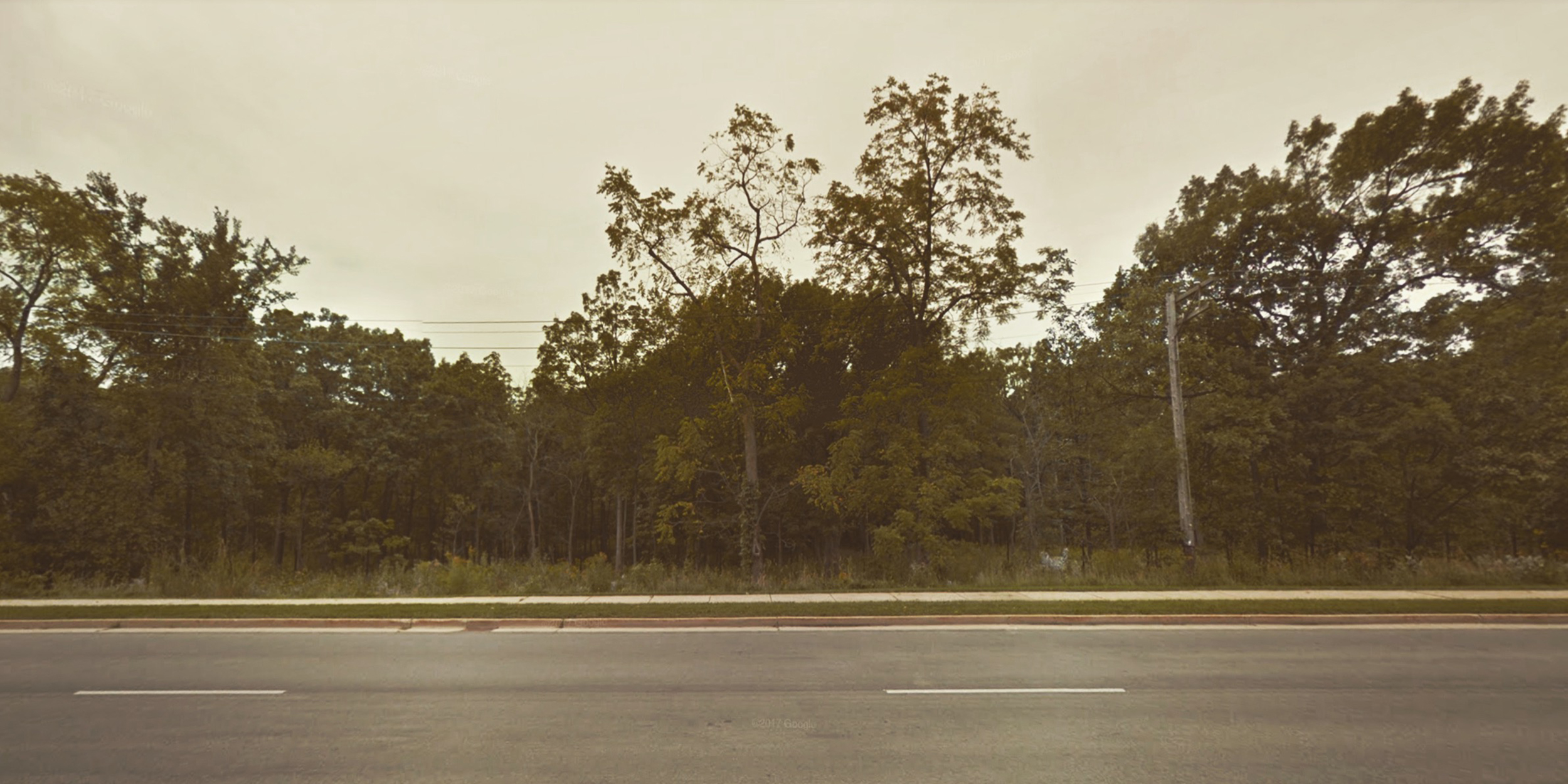
No one knew exactly how long the process would take, but it seemed to Kevin that he and the ghost would have at least a few hours to say goodbye. They spent it out near the lake, walking in a thicket of trees where Ernest used to play as a child, less out of nostalgia than as a way to maintain privacy. Ernest made the trees roar with invisible wind, showering the path behind them with branches, deterring even the most dedicated paparazzi.
Kevin later said that, as they skipped rocks across the water, Ernest told him a story about getting lost in these woods once, at the age of ten. It had felt like hours before a man came striding past, finally, a stranger out on an afternoon hike of his own. The man had taken pity on this lost child — Ernest, stranded, so young at the time, pretending to be brave — and the two of them had walked back together, following the right path, until Ernest was able to return home.
Every once in a while, Ernest said to Kevin, you meet someone who wants to help. You meet someone who’s good.
It was obvious to both of them that this was it, that Ernest’s disappearance was nearly complete. The ghost placed one thinning, translucent hand on Kevin’s shoulder. When Kevin asked if they would see each other again, Ernest insisted that they would, that, for good or for bad, somewhere everyone’s paths eventually crossed.
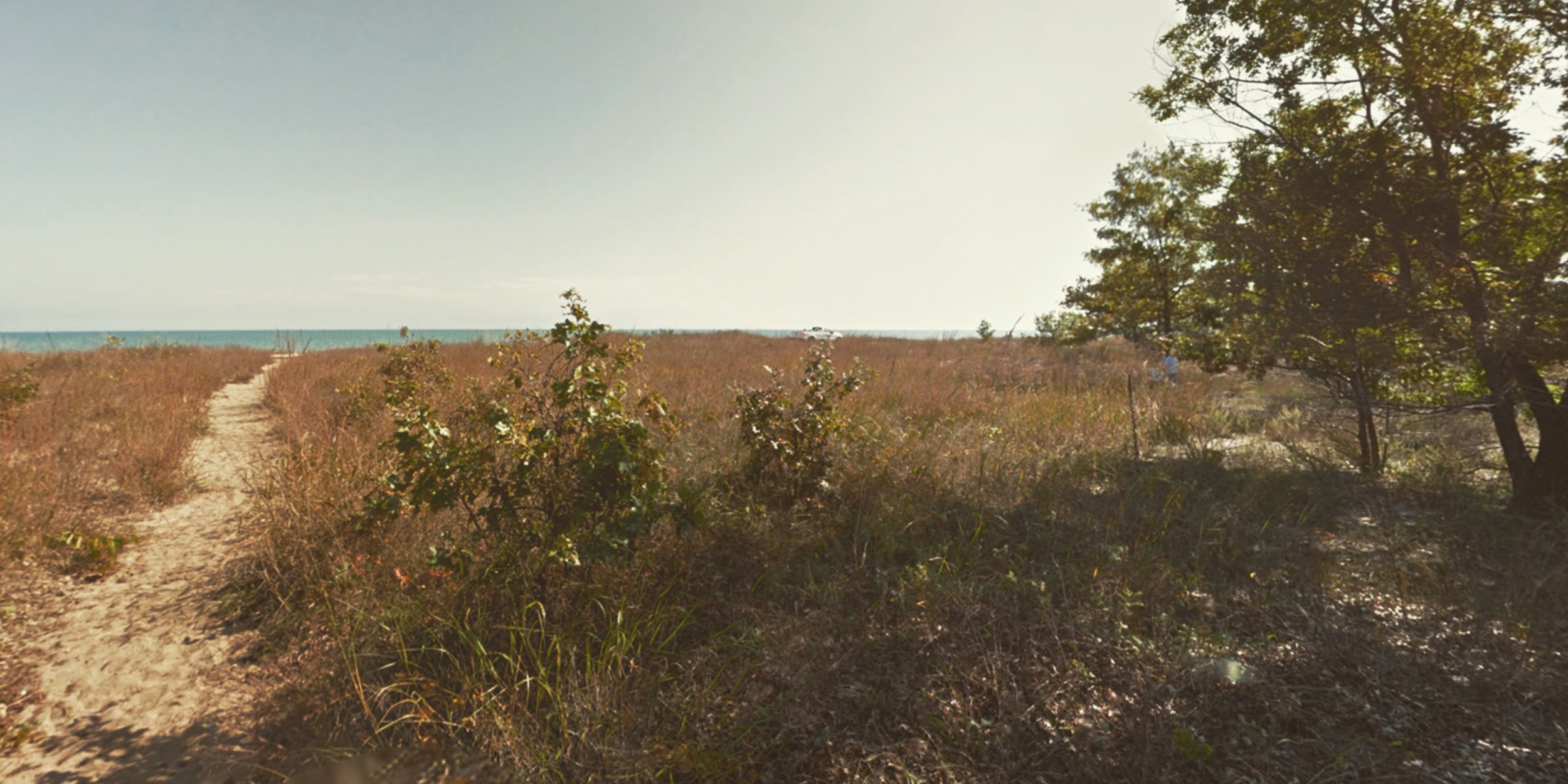
Then Kevin stood there, gazing out at the lake, before heading back through the woods on his own.